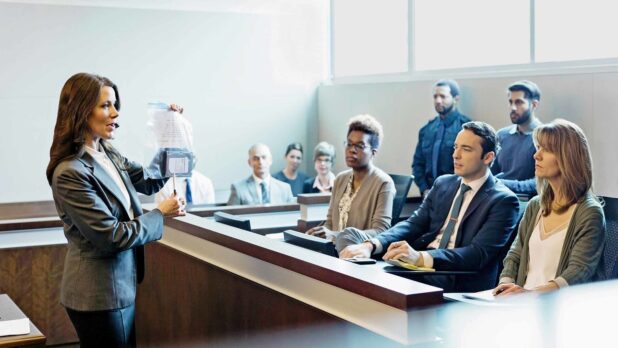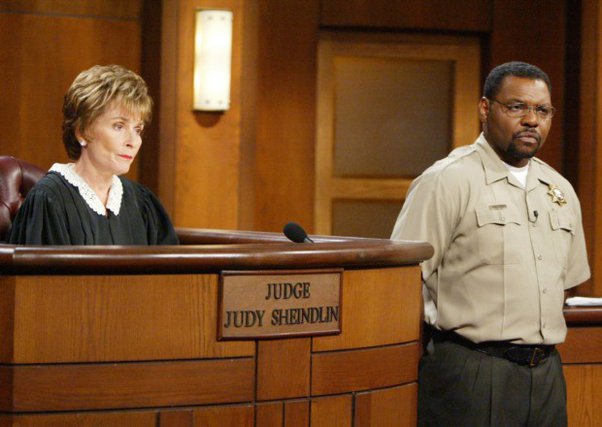Facing legal troubles can be an overwhelming experience, but the right criminal defense attorney can make all the difference. In this guide, we will walk you through the essential steps to navigate the complex world of criminal defense law. From selecting the right attorney to understanding the legal process, building a strong defense, and handling post-verdict situations, this comprehensive guide is your roadmap to confidently face the challenges ahead.
Table of Contents
Getting Started
Choosing the Right Criminal Defense Attorney

Your journey through the legal system begins with a critical decision: choosing the right criminal defense attorney. Your attorney will be your advocate, your legal expert, and your guide through the often-confusing legal maze. Here’s how to go about it:
How to Evaluate Attorney Expertise
Evaluating an attorney’s expertise is a crucial step in the selection process. Consider the following factors:
- Specialization: Look for an attorney with expertise in criminal defense law. Criminal cases can be intricate, and having a specialist on your side can be a significant advantage.
- Experience: Assess the attorney’s track record. How many cases have they handled? What were the outcomes? An attorney with a successful history can instill confidence.
- Reputation: Research the attorney’s reputation in the legal community. Do they have positive reviews from clients and peers? Reputation often reflects trustworthiness and competence.
The Importance of Compatibility
Beyond expertise, compatibility with your attorney is essential. You’ll be working closely with them throughout your case, so it’s crucial that you have a good working relationship. Consider the following:
- Communication Style: Does the attorney communicate clearly and effectively? Are they responsive to your questions and concerns? Effective communication is key.
- Trust and Comfort: Do you feel comfortable discussing your case with the attorney? Trust is the foundation of any attorney-client relationship.
- Availability: Is the attorney accessible when you need them? Timely responses to your inquiries can significantly reduce anxiety.
For more tips on building a strong client-attorney relationship, you can also visit the MMDefense website, where you’ll find valuable resources and insights.
The Legal Process Unveiled

Understanding the legal process is vital to managing your expectations and making informed decisions. From the moment of arrest to the trial itself, there are specific stages you’ll navigate.
From Arrest to Trial
The legal journey typically starts with an arrest and progresses through various stages. Each stage has its own unique challenges and requirements.
What to Expect at Each Stage
To navigate the legal process effectively, it’s essential to know what to expect at each stage:
- Arrest: The initial encounter with law enforcement.
- Booking: Administrative processes following an arrest.
- Bail Hearing: Determining if and when you can be released before trial.
- Arraignment: The formal reading of charges and entering a plea.
- Pretrial Proceedings: Legal motions, discovery, and negotiations before trial.
- Trial: Presenting evidence and arguments in court.
- Verdict: The judge or jury’s decision on your case.
- Sentencing: If found guilty, the determination of your punishment.
Your Rights and Responsibilities

Throughout the legal process, you have certain rights and responsibilities. Understanding these is crucial:
- Right to Remain Silent: You have the right to remain silent and avoid self-incrimination.
- Right to an Attorney: You have the right to an attorney, and if you cannot afford one, one will be appointed for you.
- Right to Due Process: You have the right to a fair and impartial trial.
- Responsibilities: You are responsible for cooperating with your attorney, following court orders, and respecting the legal process.
Building a Strong Defense
A robust defense strategy is pivotal in achieving the best possible outcome in your case. Your attorney will employ various strategies and tactics to protect your rights and interests.
Strategies and Tactics
Understanding the strategies and tactics used by your attorney is essential:
Crafting a Defense Strategy
Crafting a strong defense strategy involves:
- Case Review: Your attorney will thoroughly examine the evidence against you.
- Witnesses: Identifying potential witnesses who can support your case.
- Legal Arguments: Formulating compelling legal arguments to challenge the prosecution’s case.
Gathering Evidence and Witnesses

Evidence and witnesses play a crucial role in building a strong defense:
- Evidence: Your attorney will gather and present evidence that supports your innocence or casts doubt on your guilt.
- Witnesses: Identifying credible witnesses who can testify on your behalf can be a game-changer.
Inside the Courtroom
The courtroom is where your case will ultimately be decided. Understanding courtroom etiquette, procedures, and legal terminology is essential for navigating this environment effectively.
Courtroom Etiquette and Procedure
Dress Code and Behavior
Proper attire and behavior in the courtroom are crucial:
- Dress Code: Dressing appropriately shows respect for the legal process and can influence perceptions.
- Behavior: Maintaining decorum and showing respect for the judge and other parties involved is essential.
Understanding Legal Terminology
Legal terminology can be confusing, but understanding some key terms can help you follow proceedings more effectively:
- Evidence: Information presented in court to prove or disprove a fact.
- Objection: A formal protest raised during trial to challenge the admissibility of evidence.
- Cross-Examination: Questioning of a witness by the opposing party.
- Jury Selection: The process of choosing the jurors who will decide the case.
Navigating Negotiations

In many criminal cases, negotiations and settlements play a pivotal role in the outcome. Understanding plea bargains and settlements, as well as their pros and cons, is essential.
Plea Bargains and Settlements
Pros and Cons
Plea bargains and settlements have their advantages and disadvantages:
- Pros: Can result in reduced charges, lighter sentences, and quicker resolution.
- Cons: May involve admitting guilt to some extent, and you may not get your day in court.
Making Informed Decisions
Understanding the implications of plea bargains and settlements is vital:
- Consultation: Your attorney will advise you on the best course of action based on your unique circumstances.
- Informed Consent: You have the right to make informed decisions about plea offers.
After the Verdict

The legal process doesn’t always end with the verdict. Whether you are sentenced or the case is under appeal, understanding what comes next is essential.
Sentencing and Appeals
Understanding Sentencing Options
If you are found guilty, it’s important to understand the various sentencing options:
- Fines: Monetary penalties imposed by the court.
- Probation: Supervised release instead of incarceration.
- Prison or Jail: Incarceration for a specified period.
- Community Service: Unpaid work for the community.
The Appeals Process
If you believe there were errors in your trial, you may have the option to appeal:
- Grounds for Appeal: Understanding what constitutes valid grounds for an appeal.
- Appellate Court: The process of appealing to a higher court.
In conclusion, navigating the legal maze of criminal defense law requires careful consideration, informed decisions, and the guidance of an experienced attorney. By choosing the right attorney, understanding the legal process, building a strong defense, adhering to courtroom etiquette, and making informed choices regarding negotiations and appeals, you can navigate this challenging journey with confidence. Taking proactive steps can help you regain control over your life and create opportunities for a positive future. Remember, the legal system is complex, but with the right knowledge and support, you can effectively protect your rights and interests.
 World Magazine 2024
World Magazine 2024






